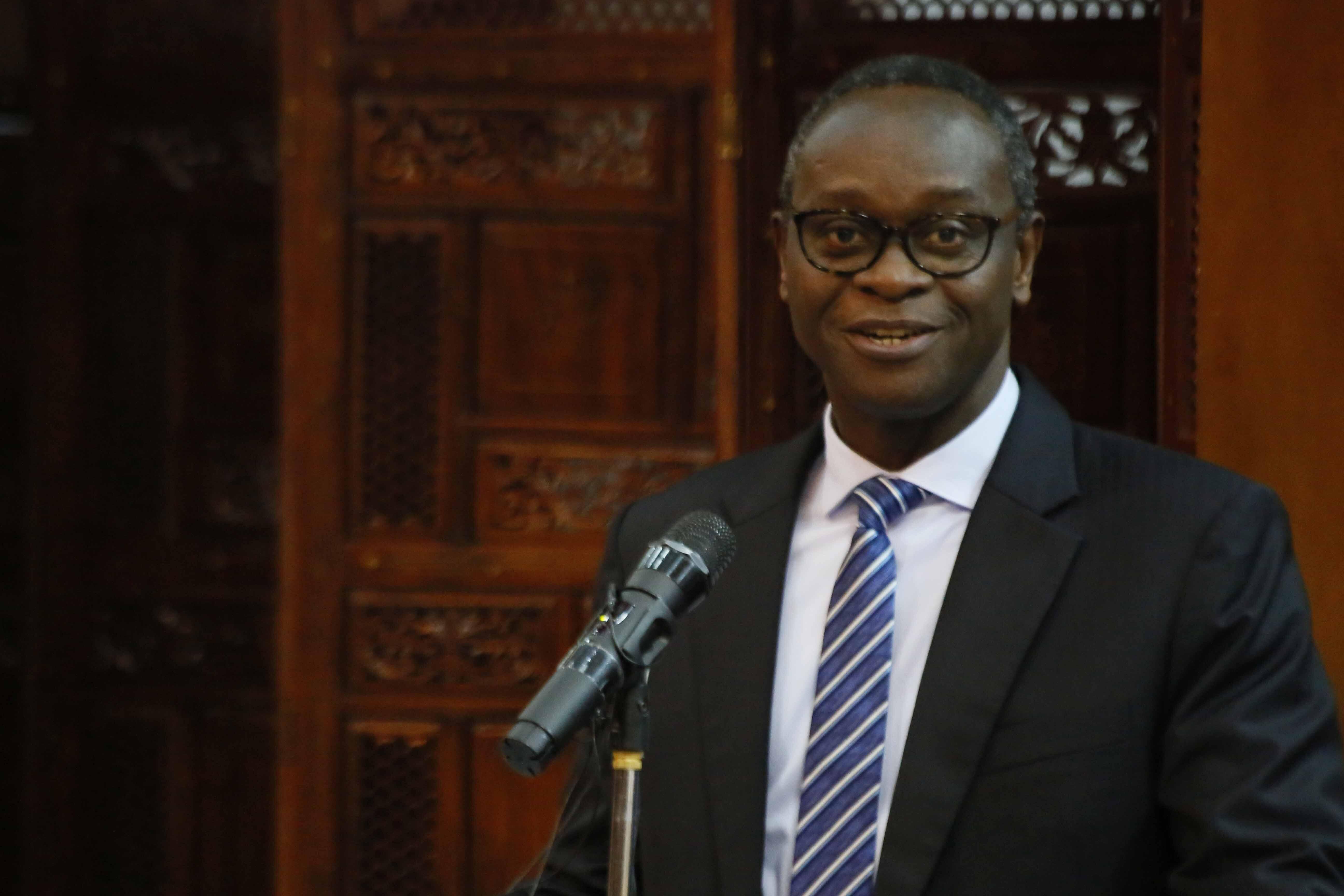The National Statistics and Information Authority (NSIA) and UNFPA Afghanistan today jointly launched the State of World Population Report (SWOP) 2019.
The UNFPA flagship report is about the unfinished business of pursuing rights and choices for all that was started 25 years ago at the International Conference on Population and Development (ICPD) in Cairo – when the world’s governments agreed that meeting the real needs of all women and girls for reproductive health care, education and advancement is key to sustainable development.
We talk to the new UNFPA Afghanistan Country Representative Koffi Kouame about the SWOP, ICPD and the list of unfinished business from the Cairo agenda that remains long to this day, both universally and in Afghanistan.
What does ICPD stand for?
The 1994 International Conference on Population and Development was when a global commitment was made for women’s reproductive health to become the centre of development. There was a recognition that ensuring the rights of women – with regard to having control over their bodies – was essential to sustainable development.
Why was it important?
It was significant because it put human beings at the centre of development. Women having the opportunity to decide how many children they wanted to have and how frequently they wanted to have them meant better access to education, paid jobs and having more seats at the decision-making table. It was an outcome that empowered women. Crucially, this goes beyond women empowerment as villages, communities and nations are empowered when women are empowered. This is why it is critical for sustainable development.
Who benefitted from ICPD?
Women benefitted, girls benefitted, the family benefitted. In essence, everyone benefitted from the outcomes of the ICPD. It is imperative to see the associated effects of the application of ICPD at both micro and macro level.
What’s changed – why celebrate ICPD now?
We celebrate the ICPD milestone because the topic of family planning was taboo in some countries at the time the Cairo agenda was set. Groundbreaking work has been done to bring family planning services to such countries and that needs to be celebrated. Maternal and newborn mortality have plunged, as women are better able to space their children and access better midwifery support, including – increasingly – in humanitarian crisis settings.
In 2003, 10 percent of women used modern contraceptives in Afghanistan, compared to 20 percent today. The number of women who die from pregnancy-related causes dropped from 1,600 per 100,000 live births in 2002 to 1,297 in 2015.
After a quarter of a century, it is good to take stock of what has been achieved and see how we can chart new ways to ensure reproductive health rights and choices for all.
What can you tell us about the State of World Population 2019?
The SWOP 2019 is a call to action to empower those who are not yet able to enjoy their rights and those whose choices are still constrained – the unfinished business of guaranteeing rights and choices for all.
Reproductive rights are still out of reach for too many women, including the more than 200 million women worldwide who want to prevent a pregnancy but cannot access modern contraceptive information and services. Maternal mortality is still high too – 800 women die every day worldwide due to complications related to pregnancy and childbirth.
In Afghanistan, more than half of women still give birth without the assistance of a skilled birth attendant and over 25 percent of married women have an unmet need for family planning.
How does the SWOP relate to the ICPD?
The ICPD sets the framework within which all implementation related to promoting women’s reproductive health rights and choices was done.
What impact would you like to see the SWOP have?
At the duty-bearer level, I would like to see governments leading on putting in place mechanisms that facilitate access to services. At the right-holder level, women have to express their needs so that they can enjoy their reproductive health rights and choices. In addition, the continued support of development partners and donors in pursuing the unfinished business of empowering women at all societal levels is indispensable. The gains made in recent years must be strengthened and expanded. Success in one country, in one region, adds to the well-being of our entire planet.
How do you see the SWOP and ICPD messages tie into UNFPA work in Afghanistan in your new role as Country Representative?
Women having control over their bodies can be the beginning of development solutions. Investing in family planning should be part of a larger effort to improve women’s education, employment and socio-economic progress in Afghanistan. In this context, it is also important to highlight ensuring access to reproductive health services in humanitarian settings – including services related to gender-based violence prevention and response. Sustained success for those already enjoying their reproductive health rights and choices is also imperative going forward. My role is to continue pushing for a comprehensive approach to women empowerment.


